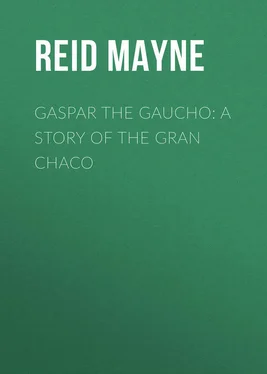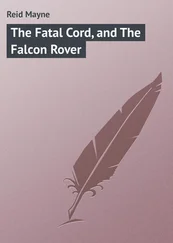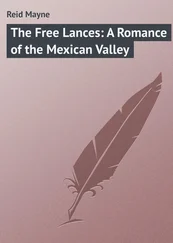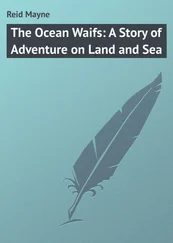Mayne Reid - Gaspar the Gaucho - A Story of the Gran Chaco
Здесь есть возможность читать онлайн «Mayne Reid - Gaspar the Gaucho - A Story of the Gran Chaco» — ознакомительный отрывок электронной книги совершенно бесплатно, а после прочтения отрывка купить полную версию. В некоторых случаях можно слушать аудио, скачать через торрент в формате fb2 и присутствует краткое содержание. Жанр: literature_19, foreign_antique, foreign_prose, на английском языке. Описание произведения, (предисловие) а так же отзывы посетителей доступны на портале библиотеки ЛибКат.
- Название:Gaspar the Gaucho: A Story of the Gran Chaco
- Автор:
- Жанр:
- Год:неизвестен
- ISBN:нет данных
- Рейтинг книги:3 / 5. Голосов: 1
-
Избранное:Добавить в избранное
- Отзывы:
-
Ваша оценка:
- 60
- 1
- 2
- 3
- 4
- 5
Gaspar the Gaucho: A Story of the Gran Chaco: краткое содержание, описание и аннотация
Предлагаем к чтению аннотацию, описание, краткое содержание или предисловие (зависит от того, что написал сам автор книги «Gaspar the Gaucho: A Story of the Gran Chaco»). Если вы не нашли необходимую информацию о книге — напишите в комментариях, мы постараемся отыскать её.
Gaspar the Gaucho: A Story of the Gran Chaco — читать онлайн ознакомительный отрывок
Ниже представлен текст книги, разбитый по страницам. Система сохранения места последней прочитанной страницы, позволяет с удобством читать онлайн бесплатно книгу «Gaspar the Gaucho: A Story of the Gran Chaco», без необходимости каждый раз заново искать на чём Вы остановились. Поставьте закладку, и сможете в любой момент перейти на страницу, на которой закончили чтение.
Интервал:
Закладка:
Chapter Eleven.
A Silent Fellow-Traveller
Another sun is rising over the Chaco, and its rays, red as the reflection from a fire, begin to glitter through the stems of the palm-trees that grow in scattered topes upon the plains bordering the Pilcomayo. But ere the bright orb has mounted above their crowns, two horsemen are seen to ride out of the sumac grove, in which Ludwig Halberger vainly endeavoured to conceal himself from the assassin Valdez and his savage confederates.
It is not where any of these entered the thicket that the horsemen are coming out, but at a point some half-mile further up the branch stream, and on its higher bank, where it reaches the general level of the upper plain. Here the sumac trees cover the whole slope from the water’s edge to the crest of the bordering ridge, on this ending abruptly. Though they stand thinly, and there is room enough for two horsemen to ride abreast, these are not doing so, but one ahead, and leading the other’s horse by a raw-hide rope attached to the bitt ring.
In this manner they have ascended the slope, and have now the great plain before them; treeless, save here and there a tope of palms or a scattering of willows around some spot where there is water; but the taller timber is behind them, and soon as they arrive at its edge, he riding ahead reins up his horse, the other stopping at the same time.
There is still a belt of bushes between them and the open ground, of stunted growth, but high enough to hinder their view. To see over them, the leading horseman stands up in his stirrups, and looks out upon the plain, his glances directed all around it. These, earnestly interrogative, tell of apprehension, as of an enemy he might expect to be there, in short, making a reconnaissance to see if the “coast be clear.”
That he judges it so is evinced by his settling back into his saddle, and moving on across the belt of bushes; but again, on the skirt of this and before issuing out of it, he draws bridle, and once more makes a survey of the plain.
By this time, the sun having mounted higher in the heavens, shines full upon his face, showing it of dark complexion, darker from the apprehension now clouding it; but of honest cast, and one which would otherwise be cheerful, since it is the face of Caspar, the gaucho.
Who the other is cannot be easily told, even with the bright sun beaming upon him; for his hat, broad-brimmed, is slouched over his forehead, concealing most part of his countenance. The head itself, oddly, almost comically, inclined to one side, droops down till the chin nigh touches his breast. Moreover, an ample cloak, which covers him from neck to ankles, renders his figure as unrecognisable as his face. With his horse following that of the gaucho, who leads him at long halter’s reach, he, too, has halted in the outer selvedge of the scrub; still maintaining the same relative position to the other as when they rode out from the sumacs , and without speaking word or making gesture. In fact, he stirs not at all, except such motion as is due to the movement of his horse; but beyond that he neither raises head nor hand, not even to guide the animal, leaving it to be lead unresistingly.
Were the gaucho of warlike habits, and accustomed to making predatory expeditions, he might be taken as returning from one with a captive, whom he is conducting to some safe place of imprisonment. For just like this his silent companion appears, either fast strapped to his own saddle, or who, conquered and completely subdued, has resigned all thoughts of resistance and hopes of escape. But Caspar is essentially a man of peace, which makes it improbable that he, behind, is his prisoner.
Whatever the relationship between them, the gaucho for the present pays no attention to the other horseman, neither speaks to nor turns his eye toward him; for these are now all upon the plain, scanning it from side to side, and all round as far as he can command view of it. He is not himself silent, however, though the words to which he gives utterance are spoken in a low tone, and by way of soliloquy, thus: —
“’Twill never do to go back by the river’s bank. Whoever the devils that have done this dastardly thing, they may be still prowling about, and to meet them would be for me to get served the same as they’ve served him, that’s sure; so I’d best take another route, though it be a bit round the corner. Let me see. I think I know a way that should lead tolerably straight to the estancia without touching the river or going anywheres near it. I mustn’t even travel within sight of it. If the Tovas have had any hand in this ugly business – and, by the Virgin, I believe they have, however hard it is to think so – some of them may still be near, and possibly a party gone back to their old tolderia . I’ll have to give that a wide berth anyhow; so to get across this open stretch without being seen, if there be anyone on it to see me, will need manoeuvring. As it is, there don’t appear to be a soul, that’s so far satisfactory.”
Again he sweeps the grassy expanse with searching glance, his face brightening up as he observes a flock of ostriches on one side, on the other a herd of deer – the birds stalking leisurely along, the beasts tranquilly browsing. Were there Indians upon the plain, it would not be so. Instead, either one or the other would show excitement. The behaviour of the dumb creatures imparting to him a certain feeling of confidence, he says, continuing the soliloquy: —
“I think I may venture it. Nay, I must; and there’s no help for’t. We have to get home somehow – and soon. Ah! the Señora! poor lady! What will she be thinking by this time? And what when we get back? Valga me Dios ! I don’t know how I shall ever be able to break it to her, or in what way! It will sure drive her out of her senses, and not much wonder, either. To lose one of them were enough, but both, and – Well, no use dwelling on it now; besides, there’s no time to be lost. I must start off at once; and, maybe, as I’m riding on, I’ll think of some plan to communicate the sad news to the Señora, without giving her too sudden a shock. Pobrecita !”
At the pitying exclamation he gives a last interrogative glance over the plain; then, with a word to his horse, and a touch of the spur, he moves out into the open, and on; the other animal following, as before, its rider maintaining the same distance and preserving the self-same attitude, silent and gestureless as ever!
Chapter Twelve.
Skulking Back
While the gaucho and his silent companion were still in halt by the edge of the sumac wood, another horseman could be seen approaching the place, but on the opposite side of the stream, riding direct down to the ford. Descried at any distance, his garb, with the caparison of his horse – the full gaucho panoply of bitted bridle, breast-plate, recado , and caronilla – would tell he is not an Indian. Nor is he; since this third traveller, so early on the road, is Rufino Valdez. As commissioner to the Tovas tribe, he has executed the commission with which he was entrusted, with something besides; and is now on return to make report to his master, El Supremo, leaving the latter to take such other steps as may deem desirable.
The vaqueano has passed the preceding night with the Indians at their camp, leaving it long before daybreak, though Aguara, for certain reasons, very much wished him to return with them to their town, and proposed it. A proposal, for reasons of his own, the cunning Paraguayan declined, giving excuses that but ill satisfied the young cacique, and which he rather reluctantly accepted. He could not, however, well refuse to let Valdez go his way. The man was not a prisoner moreover, his promise to be soon back, as the bearer of rich presents, was an argument irresistible; and influenced by this, more than aught else, Aguara gave him permission to depart.
Читать дальшеИнтервал:
Закладка:
Похожие книги на «Gaspar the Gaucho: A Story of the Gran Chaco»
Представляем Вашему вниманию похожие книги на «Gaspar the Gaucho: A Story of the Gran Chaco» списком для выбора. Мы отобрали схожую по названию и смыслу литературу в надежде предоставить читателям больше вариантов отыскать новые, интересные, ещё непрочитанные произведения.
Обсуждение, отзывы о книге «Gaspar the Gaucho: A Story of the Gran Chaco» и просто собственные мнения читателей. Оставьте ваши комментарии, напишите, что Вы думаете о произведении, его смысле или главных героях. Укажите что конкретно понравилось, а что нет, и почему Вы так считаете.












